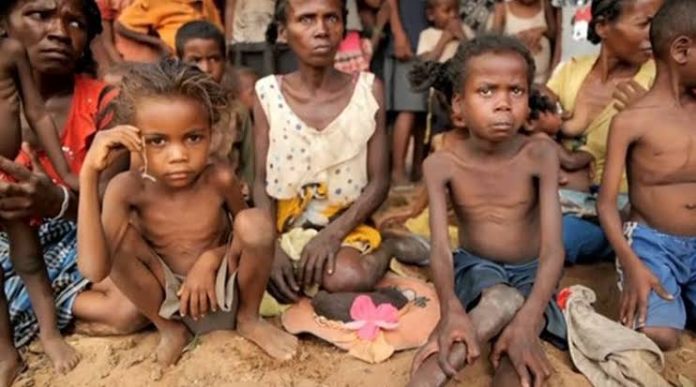Catastrophe Looms as Over 61,000 Children Affected by Malnutrition in Northwest over Insurgency
An international humanitarian organization, Médecins Sans Frontières (MSF), otherwise known as Doctors Without Borders (MSF) has warned that the current humanitarian response in the Northwest is insufficient to avert a potential catastrophe in the coming months.
This warning is coming on the heels of the revelation that about 61,200 children have been affected by malnutrition and other medical complications between January and May this year in the northwestern part of Nigeria as a result of banditry and other insecurity activities in the region.
The Médecins Sans Frontières (MSF) in a press statement issued by its field communication officer, Mr. Abdulkareem Yakubu in Dutse, said that, “malnutrition crisis is escalating in northwest Nigeria, prompting international medical organisation, Médecins Sans Frontières/Doctors Without Borders (MSF) to reinforce its activities in the zone”.
According to the statement “Between January and May this year, MSF teams in northwest Nigeria provided inpatient care to 10,200 severely malnourished children with medical complications and admitted 51,000 children to its outpatient feeding programmes”.
Yakubu noted that ”MSF has opened three new outpatient therapeutic feeding centres, in addition to the 10 inpatient centres and 32 outpatient centres that it already manages across Kano, Katsina, Kebbi, Sokoto and Zamfara states.
“Inpatient admissions were 26 per cent higher than in the same period in 2022 – numbers which were already unprecedented high,” it said.
The statement explained further that Northwest Nigeria has some of the worst health indicators in the country.
“Escalating levels of violence in recent years have contributed to turning an alarming malnutrition situation into a full-blown crisis. Armed groups regularly raid towns, loot property and kidnap local people for ransom,” the group said.
The Doctors Without Border maintained that “Many residents have fled their homes to safer areas while others have stayed but are unable to access their farms or places of work due to the worsening insecurity”.
“This year, admissions are expected to continue rising. The ‘lean season’ – the period between harvests when stocks of food run low, which runs from May to August in Nigeria – only began recently, but bed occupancy is already at 100 percent in several MSF treatment centres.
“The number of malnourished children that we’re receiving in our facilities is a strong indicator that the further we get into the lean season, the more cases we’ll receive,” says MSF medical coordinator Htet Aung Kyi.
“People in need of medical care face challenges reaching health centres and hospitals because of the risks of travelling on unsafe roads”.
“Despite the escalating crisis, northwest Nigeria lacks the attention and support required to set up a lifesaving response, which needs to include preventive measures such as food distributions and improvements to food security, as well as the early detection of malnutrition cases and timely treatment.
“MSF urges all aid organisations working in the country to scale up their humanitarian response, and calls on the Nigerian government and local health authorities to act now to prevent a catastrophic loss of life in the months ahead, the statement emphasis.
The MSF teams say that children who recover from malnutrition and are discharged tp home often need to be readmitted later as their families struggle to find enough food to keep them healthy, “this keeps children stuck in a spiral of malnutrition from which it is difficult to escape”.
According to the Nigerian Bureau of Statistics (NBS), an estimated 78 per cent of people in northwest Nigeria live below the poverty line. Healthcare is often unaffordable or hard to access, and many children have never been vaccinated against common childhood diseases. A very limited amount of international aid reaches the region. All these factors have contributed to the growing numbers of malnourished children in urgent need of treatment.


